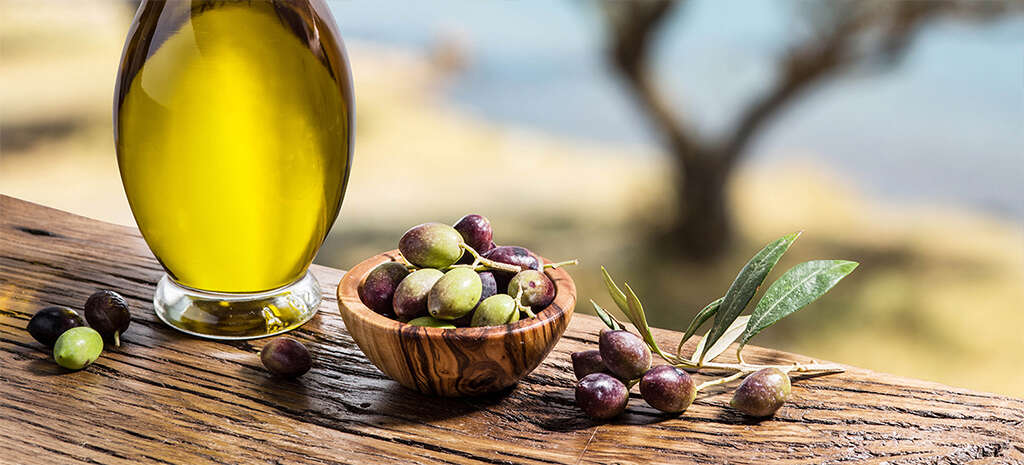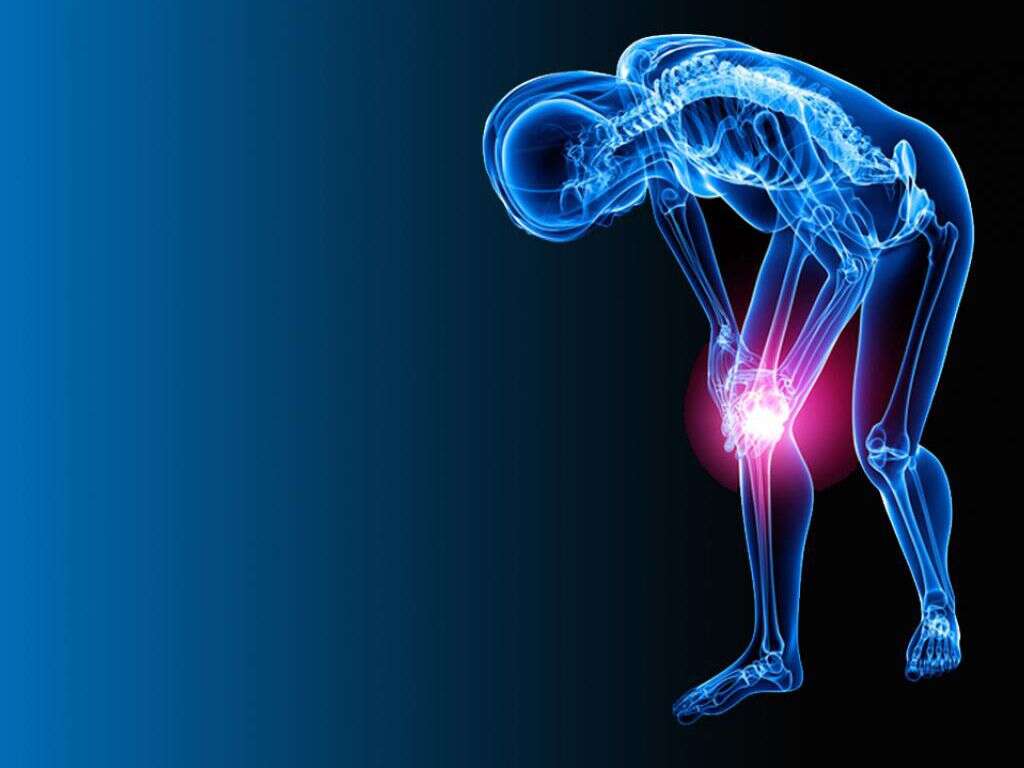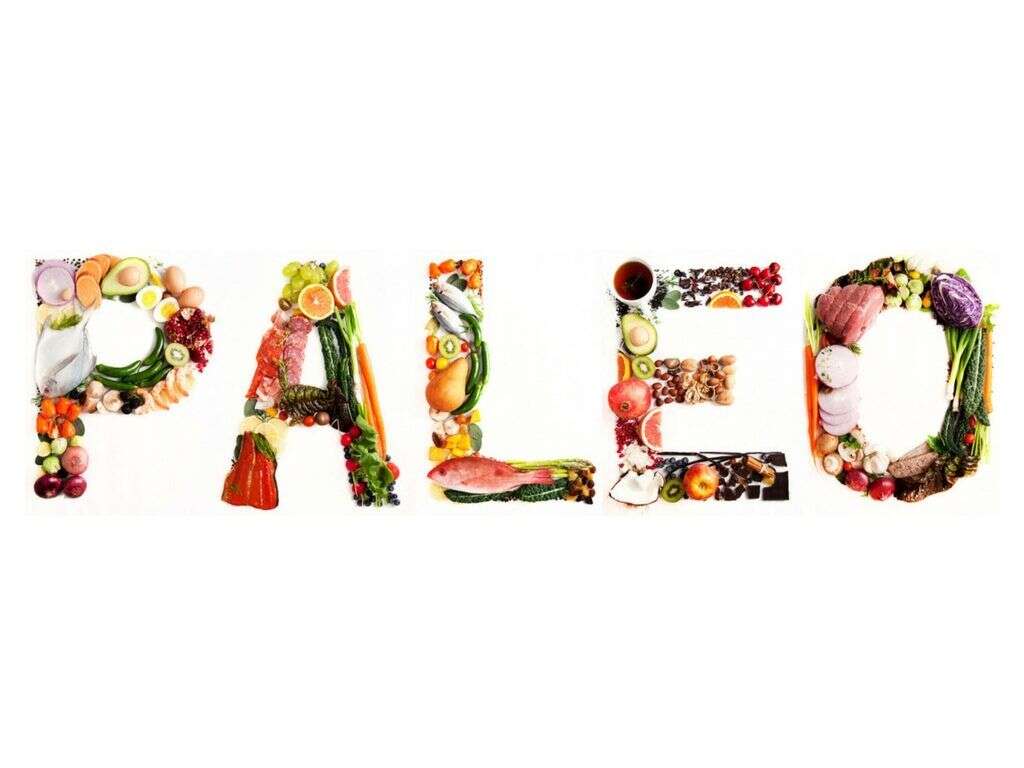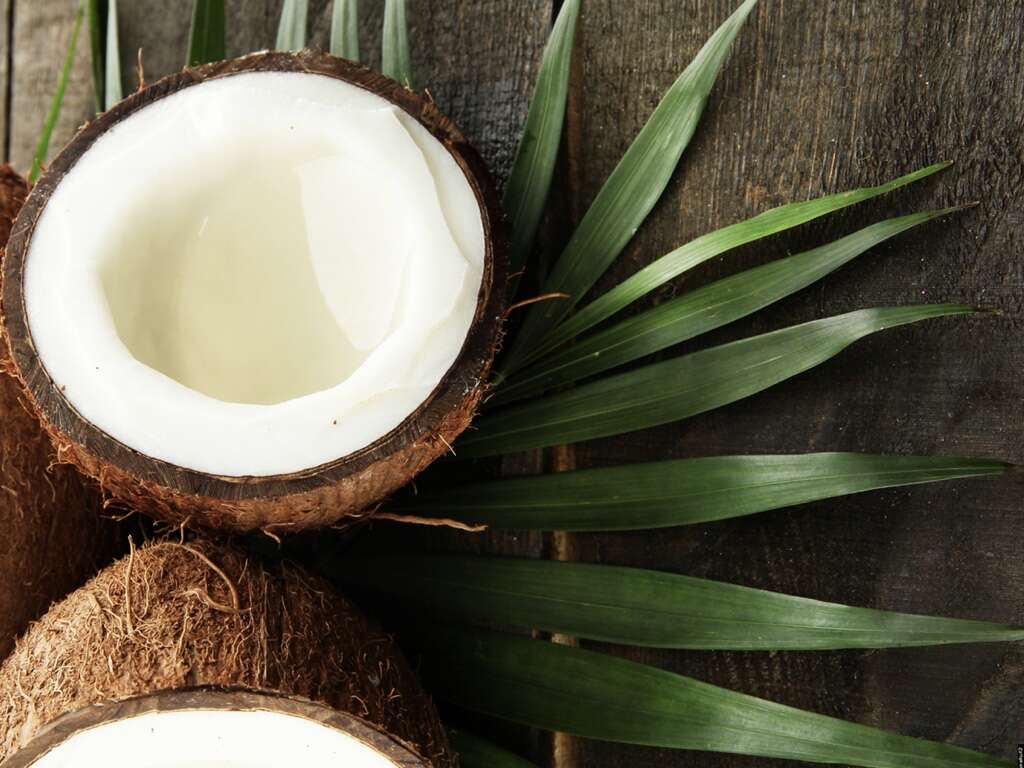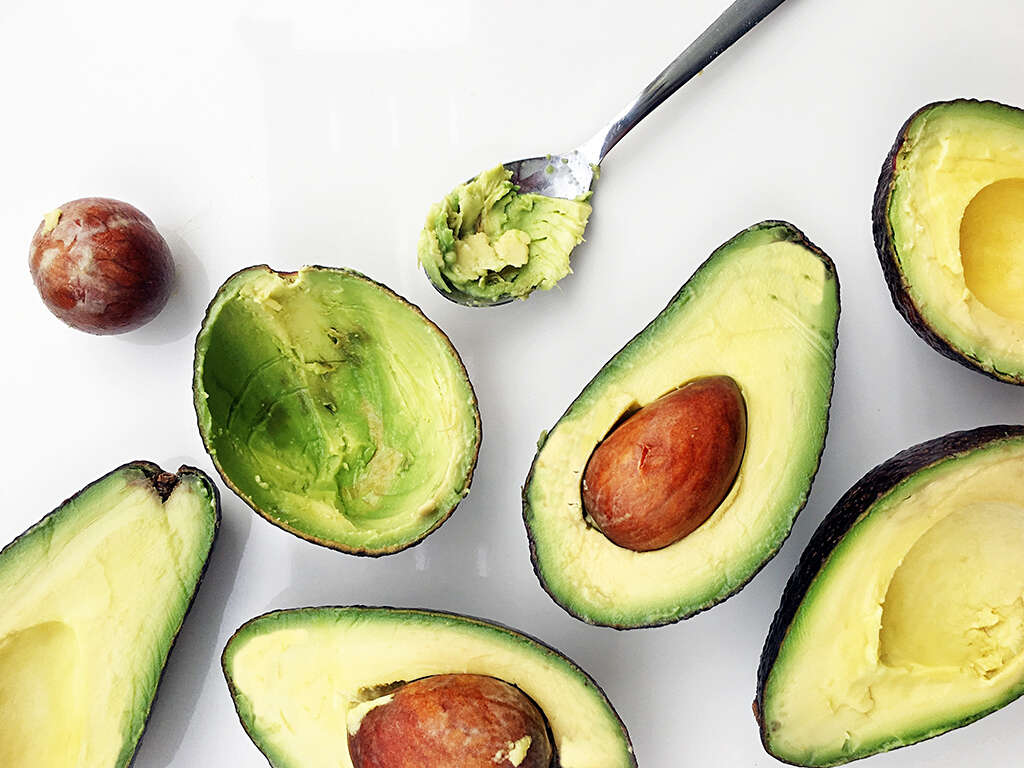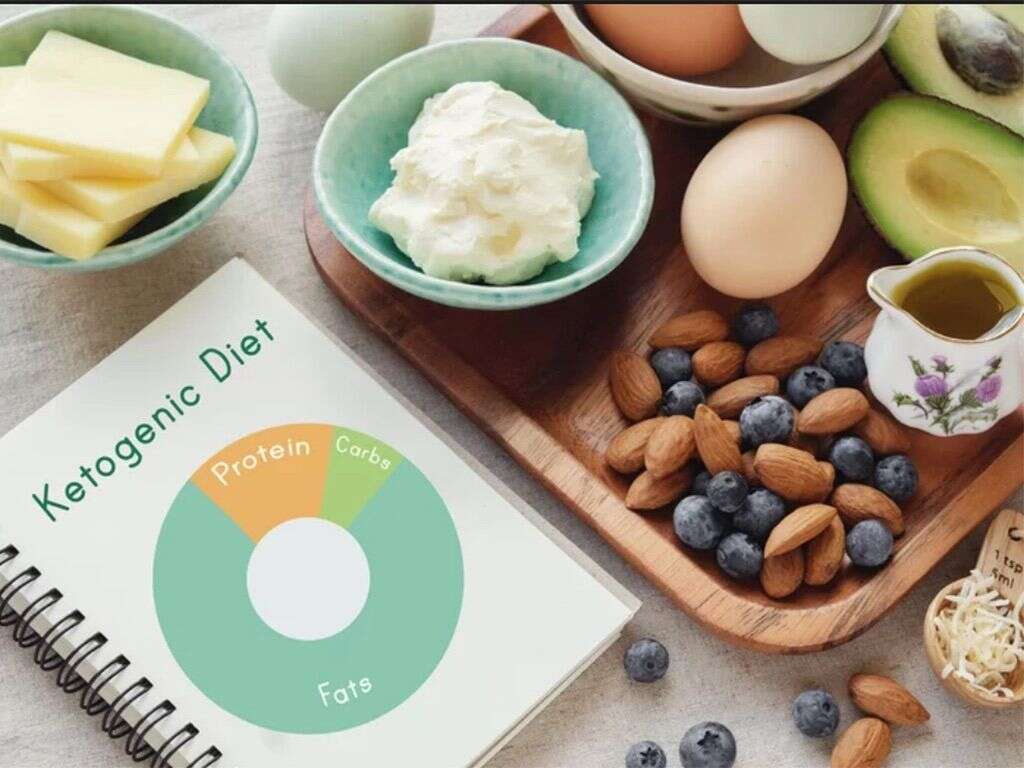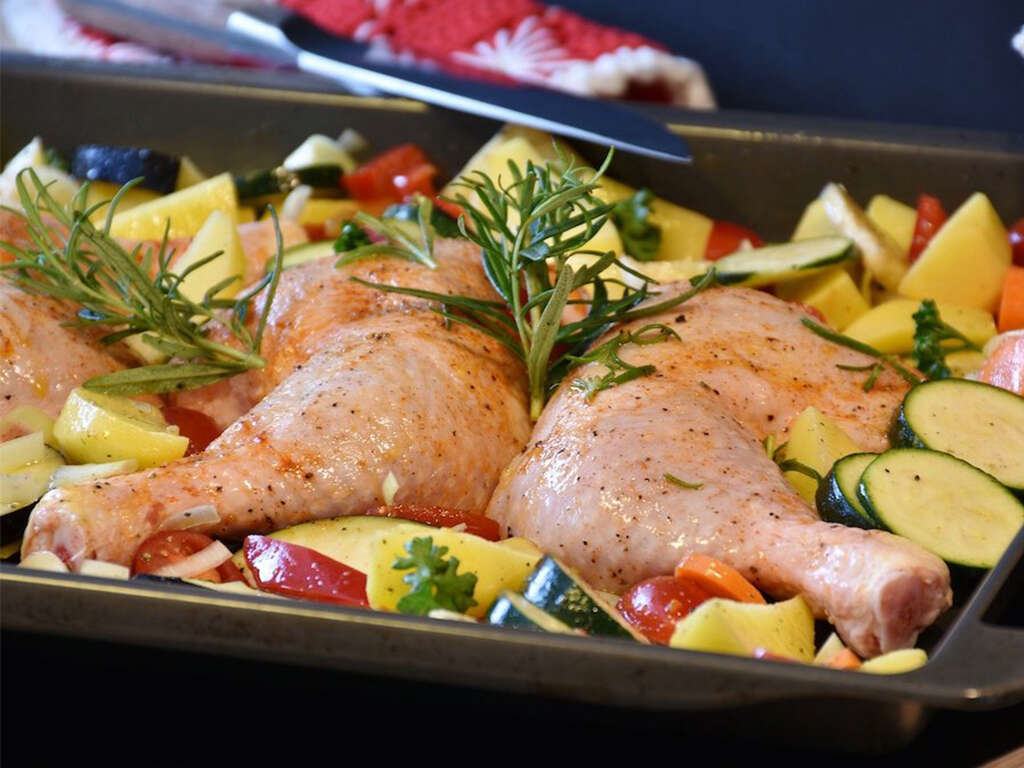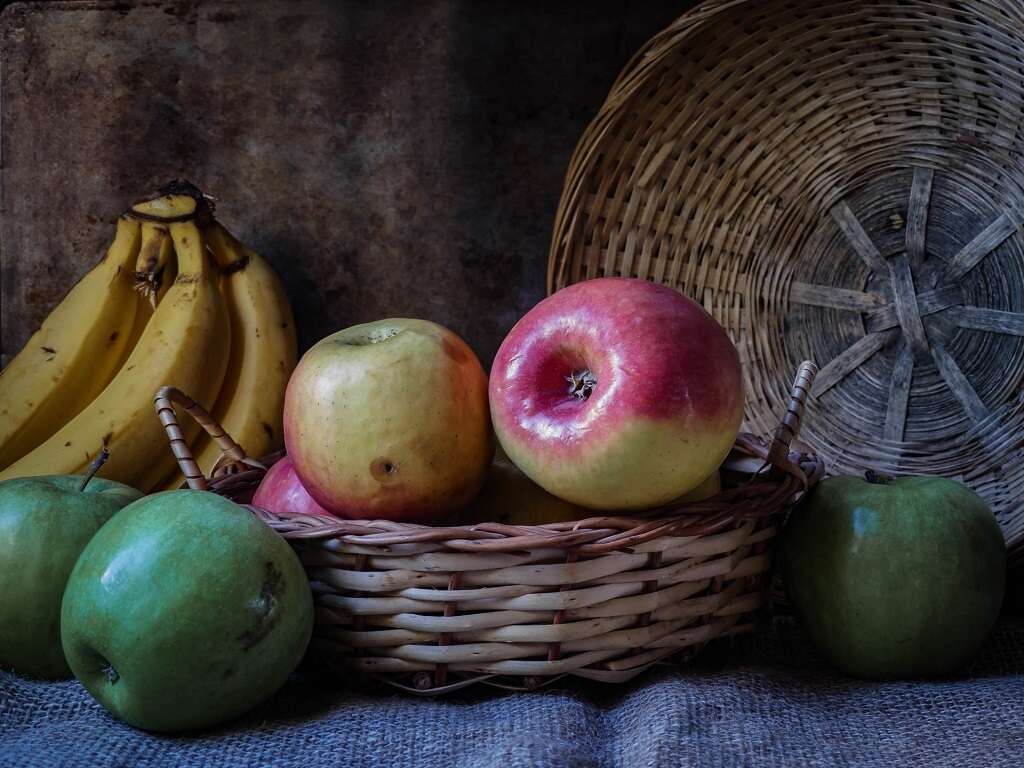10 Popular Mediterranean Diet Foods
The Mediterranean diet isn’t just a fad. The diet, which is consumed by people living in Mediterranean countries such as Greece and Italy, consists of the staple foods that people in these areas have eaten for many centuries. Research has shown that people in these areas are far healthier than the average American individual, and dietitians and scientists began to study factors that could be involved with this.
One of the main things that contributes to the impressive health levels of these people is the way that they eat. By switching to something like the Mediterranean diet, many Americans can expect to see improvements to the health of their heart, their weight, and a reduction in the risk of developing conditions such as diabetes or their related complications. Just like many less-restricting diets, there’s no specific way to follow the Mediterranean diet. The only thing that you can really do is make a point of including more and more Mediterranean foods in your diet plan.
Many, if not all of the foods that are regularly consumed in these regions, have been proven to provide humans with vital nutrients that are important for improving and maintaining their overall health. If you’re considering starting the Mediterranean diet, or if you’re simply hoping to include some healthier foods in your diet, then consider this list of 10 of the most common Mediterranean diet foods. Including these in your diet on a regular basis will certainly help to improve your overall health.
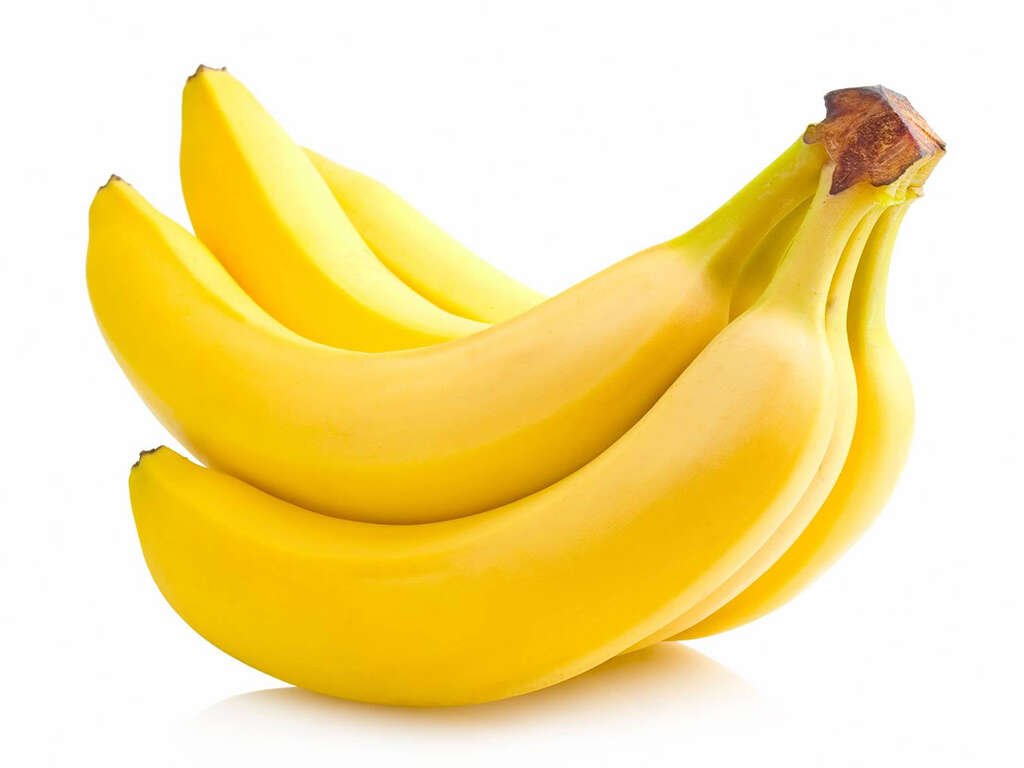
Food #1: Broccoli
Broccoli is an essential food if you’re hoping to follow a Mediterranean diet, and it’s also widely known as one of the most powerful vegetables that we can eat. Broccoli contains a huge number of vitamins and minerals, and despite the fact that many of us disliked this cruciferous vegetable as kids, nobody can deny the incredible health benefits that it provides.
Broccoli also contains a compound known as sulforaphane, which has been proven to help reduce the risk of developing cancer.
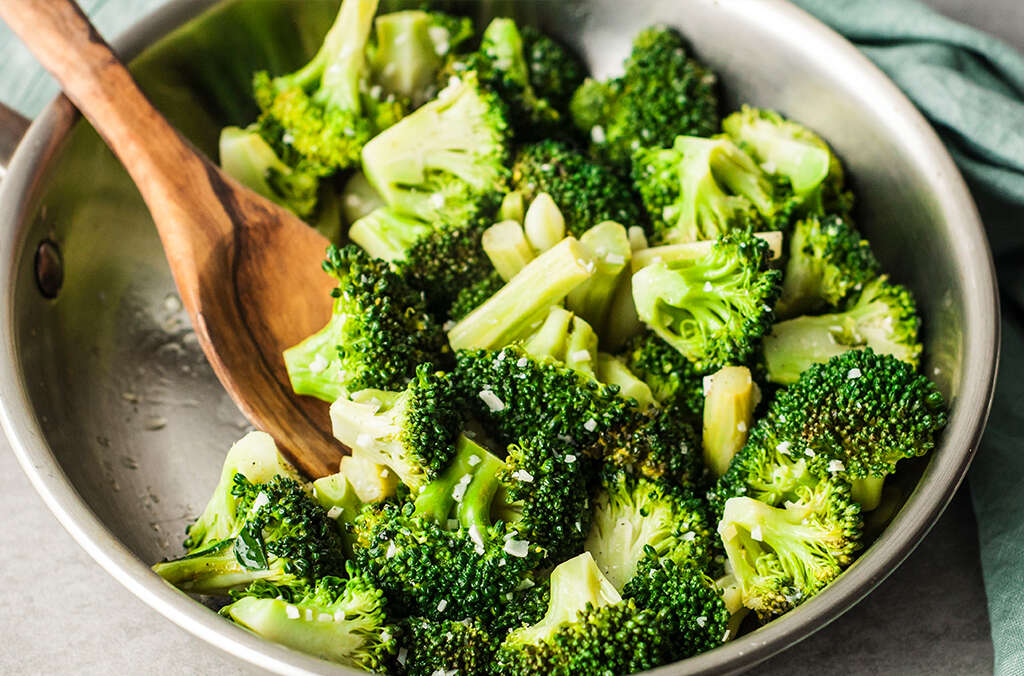
Food #2: Carrots
Carrots are another important food for anyone hoping to follow the Mediterranean diet. Carrots can be used in a wide variety of dishes and provide the body with a number of nutrients.
Carrots are widely known as being an eye-healthy food. This is because they contain vitamin A in the form of beta-carotene, as well as antioxidants like lutein and zeaxanthin. The latter two are the only antioxidants which have been shown to be present in the tissue of the eye itself.
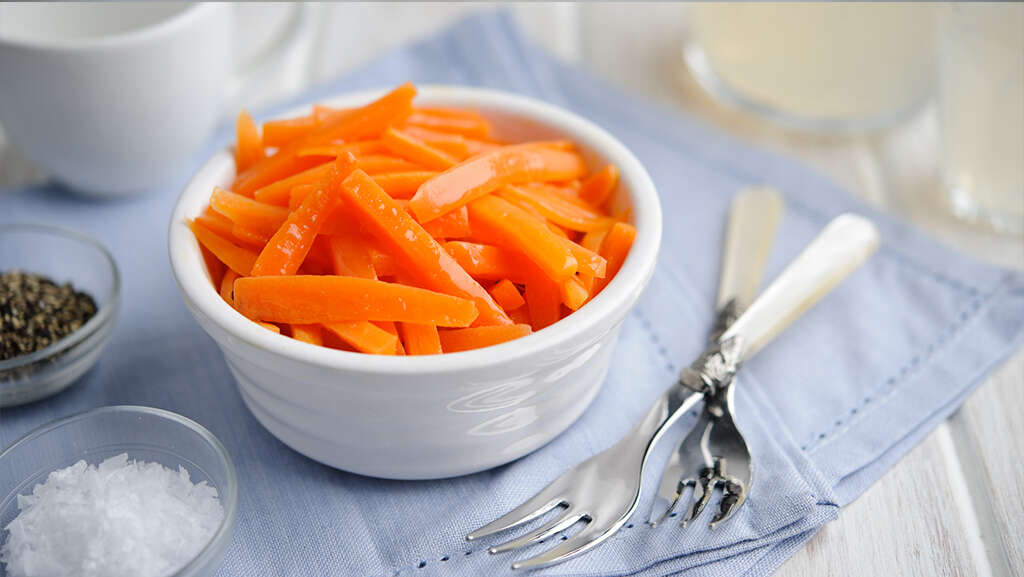
Food #3: Garlic
Garlic is a powerful food, without a doubt. Despite the fact that it’s used by many in several meals per day, it’s important to note that garlic should be used with relative moderation. It’s a powerful antiseptic and antibacterial plant and using too much of it can upset the balance of the healthy bacteria in your gut.
That said, garlic is fantastic for helping people ward off colds and illnesses in addition to providing incredible flavor to a wide variety of meals.
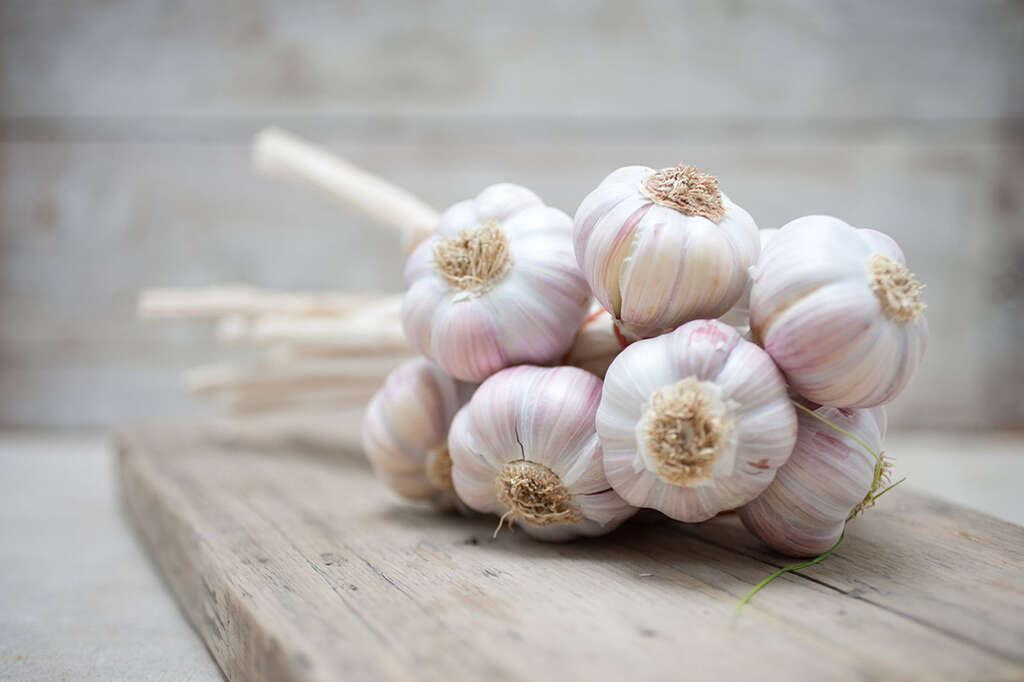
Food #4: Mushrooms
Mushrooms are another food that are rich in nutrients. There are many different forms of mushrooms, and they can be utilized in a huge number of different ways.
Many different mushrooms share a similar nutritional profile, so if you’re unsure about which ones to purchase, chances are whatever you choose will be good for you. Mushrooms tend to digest slowly, however, and should be eaten in moderation.
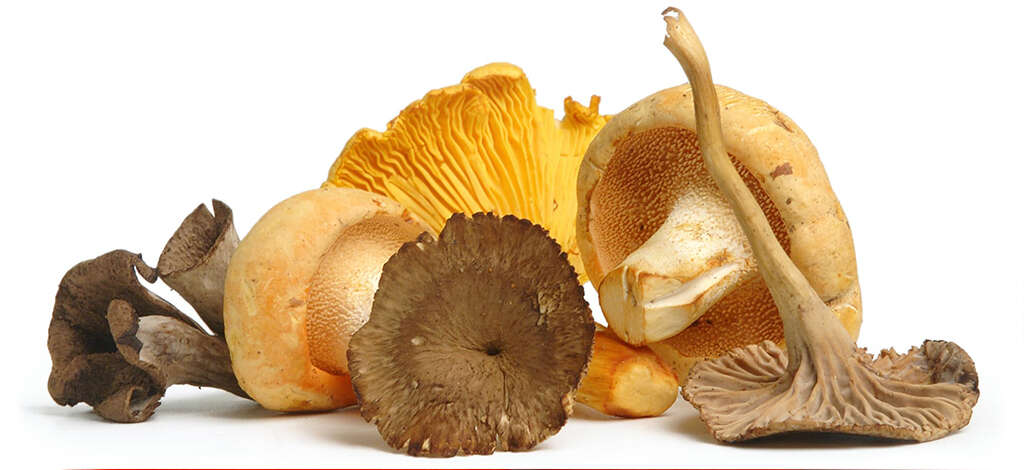
Food #5: Tomatoes
Tomatoes are another nutritionally dense food that are used frequently in the Mediterranean. Tomatoes can be great additions to salads and sandwiches, are vital for making a good pizza or pasta sauce, and can even be eaten on their own.
Your best bet is to find locally grown, organic tomatoes as these will provide you with more nutrition.
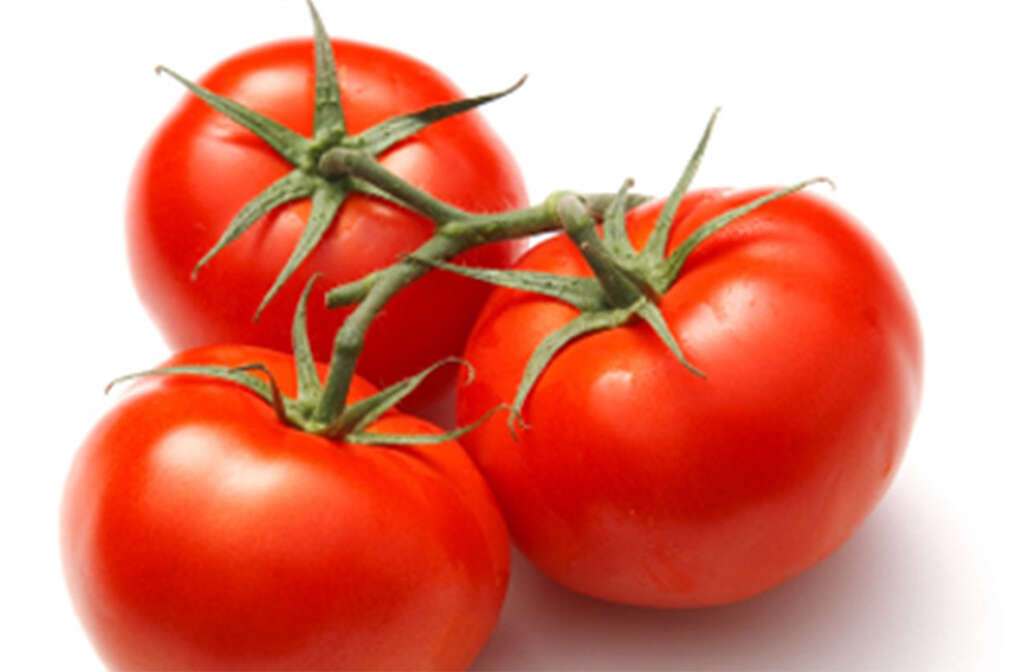
Food #6: Apricots
Fruit is also an essential part of the Mediterranean diet, and apricots are one of the most commonly consumed fruits in these regions. Many of us are more familiar with dried apricots than fresh ones, but it’s always important to try to get fresh fruit.
Dried fruit is great for traveling expeditions and hikes because it’s easier to carry, but fresh fruit is easier to digest and thus provides the body with more nutritional benefits.
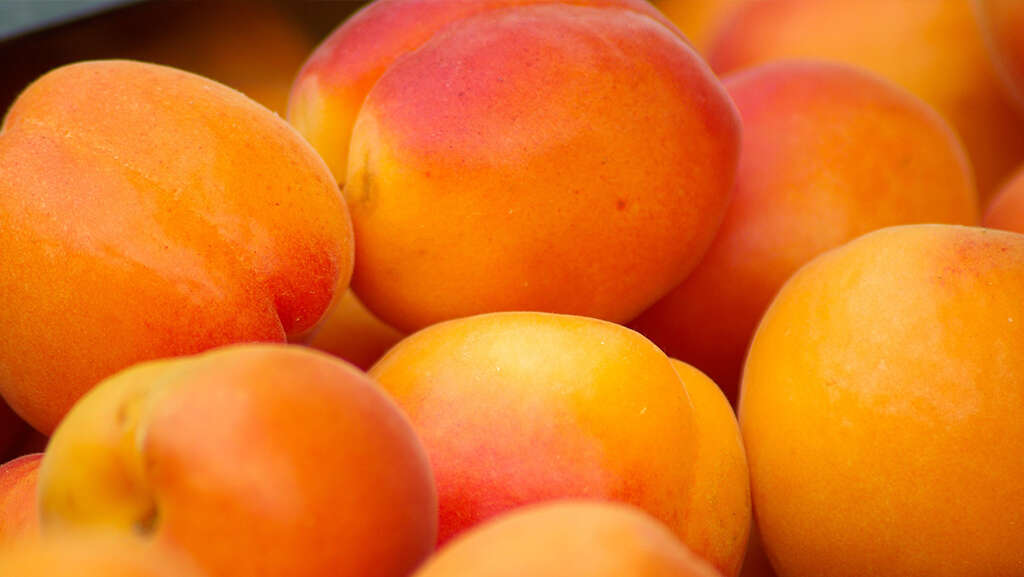
Food #7: Bananas
Bananas are another fruit that are frequently enjoyed in the Mediterranean. Bananas are rich in a number of nutrients, especially potassium, and they’re easy to digest.
Bananas can be eaten on their own or added to oatmeal or different deserts for an extra nutritional punch.

Food #8: Nuts and Seeds
Nuts and seeds are another vital part of the Mediterranean diet. Nuts and seeds are a great source of omega-3 fatty acids and other essential fats, in addition to providing the body with fat-soluble vitamins such as vitamins A, D, E, and K. These vitamins are great for helping to improve the health of your hair and skin, as well as enhancing cognitive ability and heart health.
There are many different nuts and seeds to choose from. Popular nuts found in the Mediterranean region include almonds, cashews, peanuts, pine nuts, walnuts, and sunflower seeds.
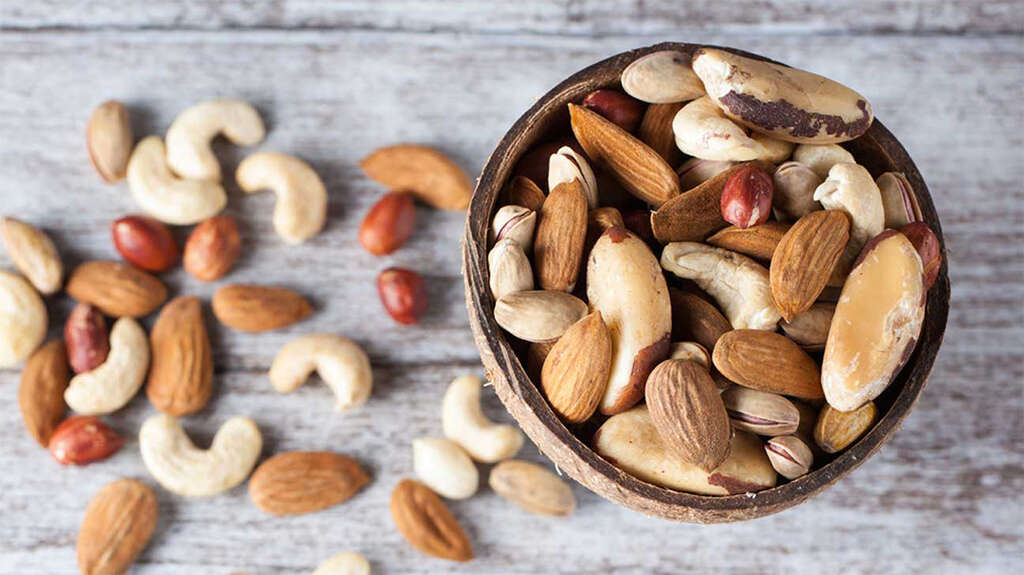
Food #9: Herbs and Spices
There are a huge number of herbs and spices that you can use to enhance the flavor of your Mediterranean culinary masterpiece. Each herb and spice will provide its own nutritional or medicinal punch, and using herbs with the right understanding can vastly improve your health and reduce the chance of developing disease.
Popular herbs found in the Mediterranean region include basil, bay leaves, cilantro, cumin, parsley, rosemary, oregano, thyme, and black pepper. Using small amounts of different herbs in every meal can help to enhance digestion, fight oxidation, and enhance your longevity.
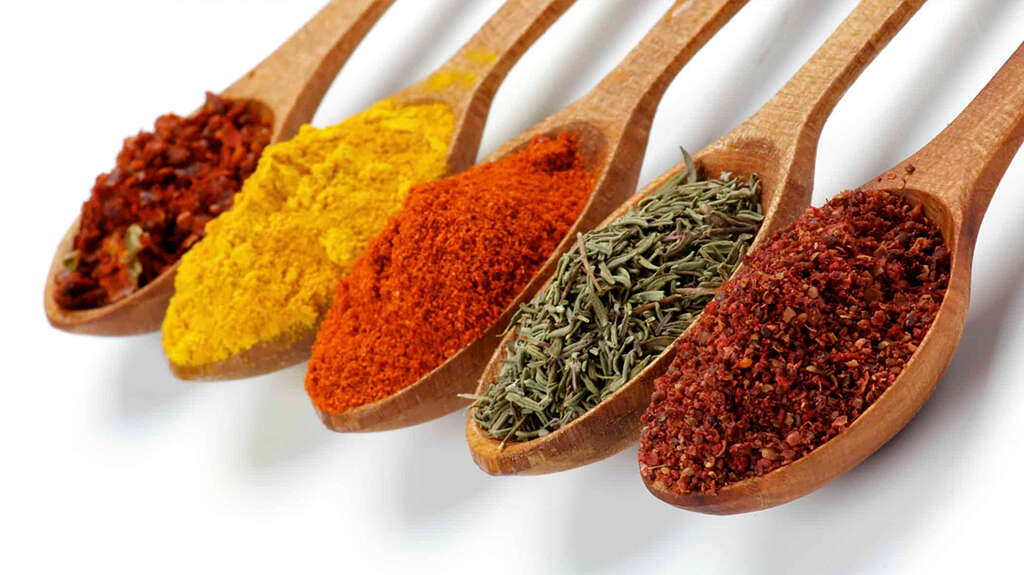
Food #10: Oils
Most people are aware that olive oil is a staple in the Mediterranean diet. Rich in fat-soluble nutrients and a great source of omega-3 fatty acids, olive oil is a great way to improve the health of your heart and your brain.
It’s not just olive oil that’s used in the Mediterranean, however. There are many types of culinary oils that are useful for enhancing your health, including avocado oil and grapeseed oil. Not only are these oils fantastic for cooking but they can also improve the health of your hair and skin when used topically.
